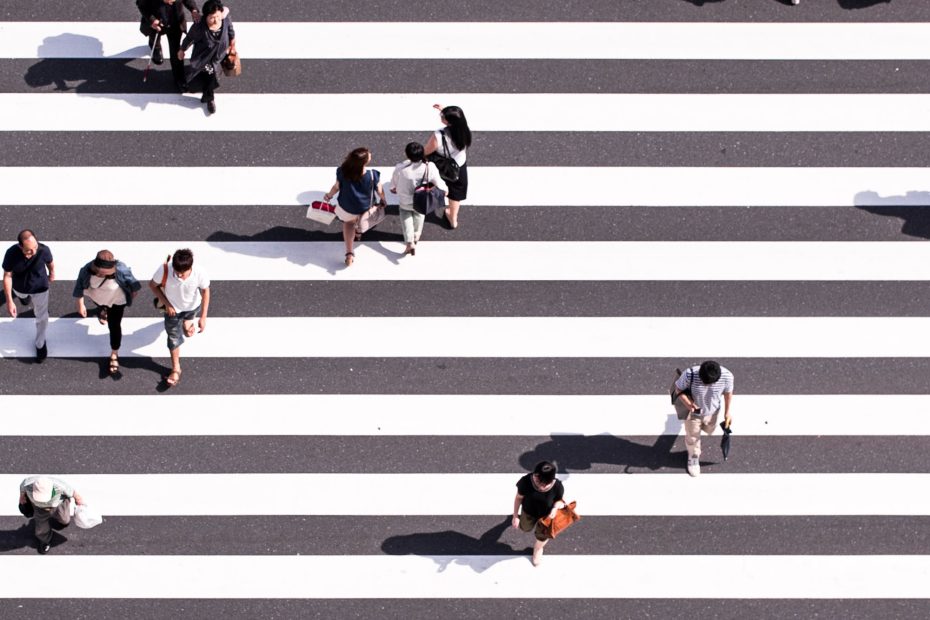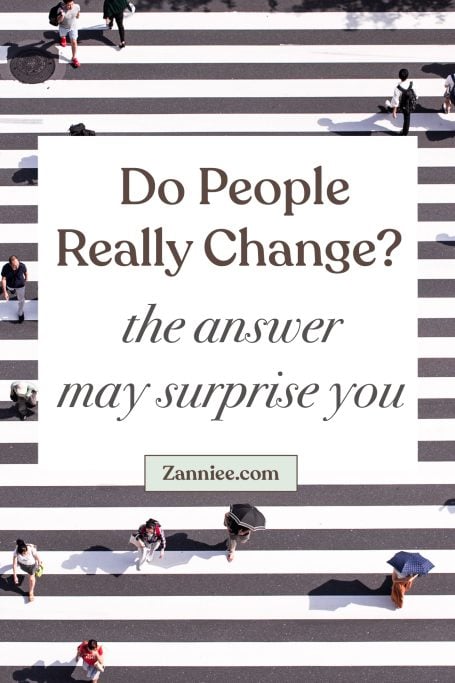Do People Really Change? The Answer May Surprise You
Recently, I've been thinking about the friends I've known for a long time and how they haven't really changed. Sure, their appearances and external circumstances have evolved, but not so much in terms of behavior. The qualities I initially liked about them stayed intact, and the ones that bothered me over a decade ago still bother me today.
I had the suspicion that people didn't really change.
Table of Contents
Do People Really Change?
In movies, the main character undergoes a huge transformation by the end of the hero's journey. But on TV shows, the characters are the same week after week while getting up to new shenanigans per episode. On long-running TV shows, some characters might start exhibiting some minor changes past season four. Maybe they get a little more mature, confident, or capable. In reality, most of us change like TV characters: slowly or not at all. Sometimes, people even change for the worse.
I broached this topic with my Kabbalah teacher during our next meeting. She said that the whole point of doing spiritual work is to change for the better. But it's best not to expect anyone to change because most people don't.
The recognition that most people don't really change is a hard truth, but one that also liberates me. I can either accept a person for who they are right now, or I don't and move on. Everyone has negative traits. Which trait is a dealbreaker is the real question.
Some people can be real Jekyll and Hydes. At their best, they're amazing to be around. At their worst, they are abrasive or even abusive. They can work to transform their terrible traits, but it's not a guarantee it'll happen. Assuming they won't change, can we accept them at their worse?
Change is hard. I look at my own negative qualities, and even with all the spiritual and self-healing work that I do, I still get reactive in the same ways when I am triggered, although slightly less angry than before. Of course, I'll do my best to keep evolving, but I can also accept myself as I am knowing just how difficult change can be.
Years ago, a woman in her 60s shared with me that the issues she had with her husband at the beginning of their marriage, such as him working too much, are still issues today. They've been happily married for all these decades, so these issues are not dealbreakers. They just had to learn to accept each other unconditionally and take the good with the bad.
Some people go into relationships thinking things will improve after they fix their partner. Maybe that could happen in a small minority of cases if the partner is really self-motivated, but given the odds, it's not smart to bank on the other person changing. The smart thing to do is to see someone with open eyes and to know your dealbreakers. Once you're married and share kids and property, it's much harder to walk away.

Why We Want to Change Others
It's understandable to want others to change. We want to feel safe from their bad behavior. We want to limit the ways they can hurt us. We want control. It's easier to place the burden of change on others.
Giving someone an ultimatum is forcing them to meet our needs whether they are capable of it or not. Maybe it could work in the short term if they agree out of fear of, say, abandonment, but they will feel resentment from being pressured to do something they didn't want to do. You can't nag or force someone to change. It has to come from their real desire.
The only thing you can control in relation to other people is to work on changing yourself. Place healthy boundaries. Nip in the bud the bad behaviors people expect you to tolerate. If they want to keep behaving in toxic ways, fine, but not around you. When you change yourself, you're changing how others respond to you.
Expect less from others. Approach people from a place of understanding. Recently, I've been asked about my Enneagram and Human Design type. There are all sorts of other ways to categorize people: Myers-Briggs, DiSC, astrology, Harry Potter houses. We want to be sorted so we also can understand ourselves and know which tribes we belong in. These personality typologies can be helpful tools as long we don't use them to judge and stereotype others. Every person deserves to be recognized as an individual with their own history and soul journey.
How Someone Can Really Change
Attitudes can shift. Certain negative behaviors can be unlearned. Bad habits can be improved if the underlying issues are healed.
But culturally-ingrained programming can be more challenging to change. Some traits we are genetically predisposed to, such as mental health issues or the Big Five personality traits, are difficult or unlikely to change.
For the things they can control, a person can change only when they really want to. They must take accountability and the steps required to see results, hiring experts for guidance whenever possible. But if someone is surrounded by all the personal and professional help required, yet they are not self-motivated to follow through, it doesn't matter whose support they have.
When a person really needs to change, something may happen that gives them little choice. They may go through a dark night of the soul or hit rock bottom, visit a place so miserable that they vow never to be down there again. In these cases, fear will motivate them to change, but the change is coming from a reactive place. Nevertheless, using fear as a motivator can produce successful results, even if it is not ideal.
Why wait for the universe to kick us in the ass? It's better to be proactive. We can do that by paying attention to the negative patterns in our lives so we can make a plan to change them. Change doesn't need to happen overnight. In most cases, it won't.
I'm motivated to change because I want a better life. This means using my self-healing tools to understand why things are happening to me, and then it's a matter of chipping away these stale beliefs and programming, as well as taking appropriate action. It can still be a long process because some programming is so ingrained in me, accumulated from multiple lifetimes, that I have to attack them from different angles. In general, changing old ways of thinking and behaving takes time and effort, but I find the results to be worth it. Change is not about becoming a different person but a better version of my true self. I want to change because I want to be more comfortable in my own skin.
